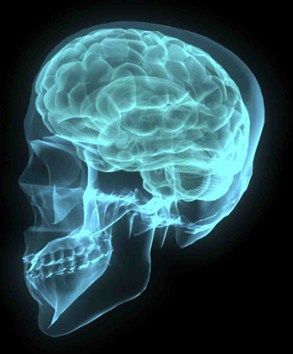Traumatic Brain Injury – the Basics

Posted by Steve Jones
Thu, Feb 5, 2015
Unlike the physical wounds of broken bones and lacerations, traumatic brain injury (TBI) affects mood, thought processes, and behaviour, often in ways that are difficult to understand for people who are not trained to care for TBI patients. Compounding the problem is that TBI affects each individual in different ways, and the scientific reasons for these effects are sometimes poorly understood.
The behavioural and life-altering consequences of TBI, on the other hand, are unfortunately too well known by the families of TBI patients. Personality changes, loss of cognitive abilities, memory loss, and emotional disability are all common after traumatic brain injury. Social isolation affects family members as well as the patient because outsiders rarely understand how different their lives have become.
These disabilities may last years or a lifetime. Many brain injuries occur as a result of auto accidents and you have insurance to deal with as well as the injuriy itself. (See our post on Navigating the Auto Injury Claims Process) Many TBI patients are young or in their prime income-earning years. Some can never go back to work or cannot fully support their family anymore because they can no longer work in their former occupation, so financial difficulties are common as well.
Types of brain injury
- Neural damage ” Disconnection, stretching and twisting of brain and connective tissue can be caused by the brain being moved within the skull during impact.
- Bruising ” This can occur under the site of a blow or when sudden deceleration or acceleration makes the brain smash into the skull opposite the site of impact.
- Swelling ” The brain expands and causes pressure against sharp ridges on the inside of the skull bones.
- Haemorrhage ” Bleeding into or around the brain causes cell death and possible blood clot and puts increased pressure on the brain as in swelling.
Areas of the brain affected by TBI:
Frontal lobes ” this is the area of the brain where thinking and self-awareness happen. When the frontal lobes are affected:
- The patient may not be aware of his own needs or the affect of his behaviour on others. He may not appreciate the extent of his own impairment or weaknesses.
- He may experience lack of inhibition and lapses in judgment, be unable to plan actions appropriately, stop certain behaviour once he has started it, or understand the consequences of his actions.
- He may not be able to think creatively, abstractly, or in new ways. Attention and concentration may be difficult or missing altogether. He might unable to feel or express emotion.
Temporal lobes ” where memory, information and emotion are stored and generated
- She may not remember or be able to learn and retain new information.
- Emotions may be expressed with great intensity or in extreme form.
- Rage, in particular, may erupt with the slightest provocation, and it may be impossible for her to control it or calm down.
Cingulate gyrus ” This part of the brain regulates emotion and orients us to new stimuli. When it is damaged, he cannot get used to new stimuli and may be consistently distracted by even common stimuli in his environment.
Corpus callosum ” this is the bundle of fibres that connect the two halves of the brain. When it is damaged:
- Patients may be emotionally inconsistent. Their feelings and the expression of those feelings may be incongruent, such as laughing and smiling when describing emotional pain.
- They may behave inappropriately in social situations.
- They may be unable to identify and describe their emotional state. Some patients can only understand and express concrete thoughts. Their emotional response may be totally lacking and they are unable to be intimate or engage in psychotherapy because they cannot access their emotions.
Common Behavioural Results of TBI
- Uncooperative or oppositional behaviour ” this can come out as not wanting to participate in rehabilitation activities and also as resistance to societal or even household rules of behaviour.
- Denial of illness ” when the right frontal lobe is damaged, the patient may not be able to recognize any disability or mental impairment, even something as major as paralysis. They may recognize their impairment but may be indifferent to it and do not care enough to participate in rehabilitation.
- Disruption of relationships ” Social isolation is common after TBI, partly because it requires a long rehabilitation and partly because of the trauma and its affect on the brain. Even family relationships may suffer; relatives frequently say that their loved one is belligerent, negative, suspicious, uncommunicative and socially withdrawn, impulsive, or confused.
- Memory disorders ” these are among the most common results of TBI because the temporal lobes are so vulnerable. Some patients respond well to memory retraining, although if the trauma is severe enough, patients may be unable to remember the strategies taught from one session to the next.
All of these disabilities require that caregivers have special training so that TBI patients and their families can live as full a life as possible. In Part II of the series next week we will discuss the rehabilitation process and the training needed to care for those with traumatic brain injury.
More questions?
Want to speak to a care expert about how to ensure the safety of your loved one during these uncertain times?
Let's connect you with the closest available Qualicare expert in your city to answer your questions.
The Qualicare Difference
Comprehensive care planning led by experienced Care Experts
"Qualicare changed everything. Mom loves her new companion, meanwhile Jack and I have peace of mind and more time to focus on the kids. "
Janette Aldermaine


 Have Questions?
Have Questions?